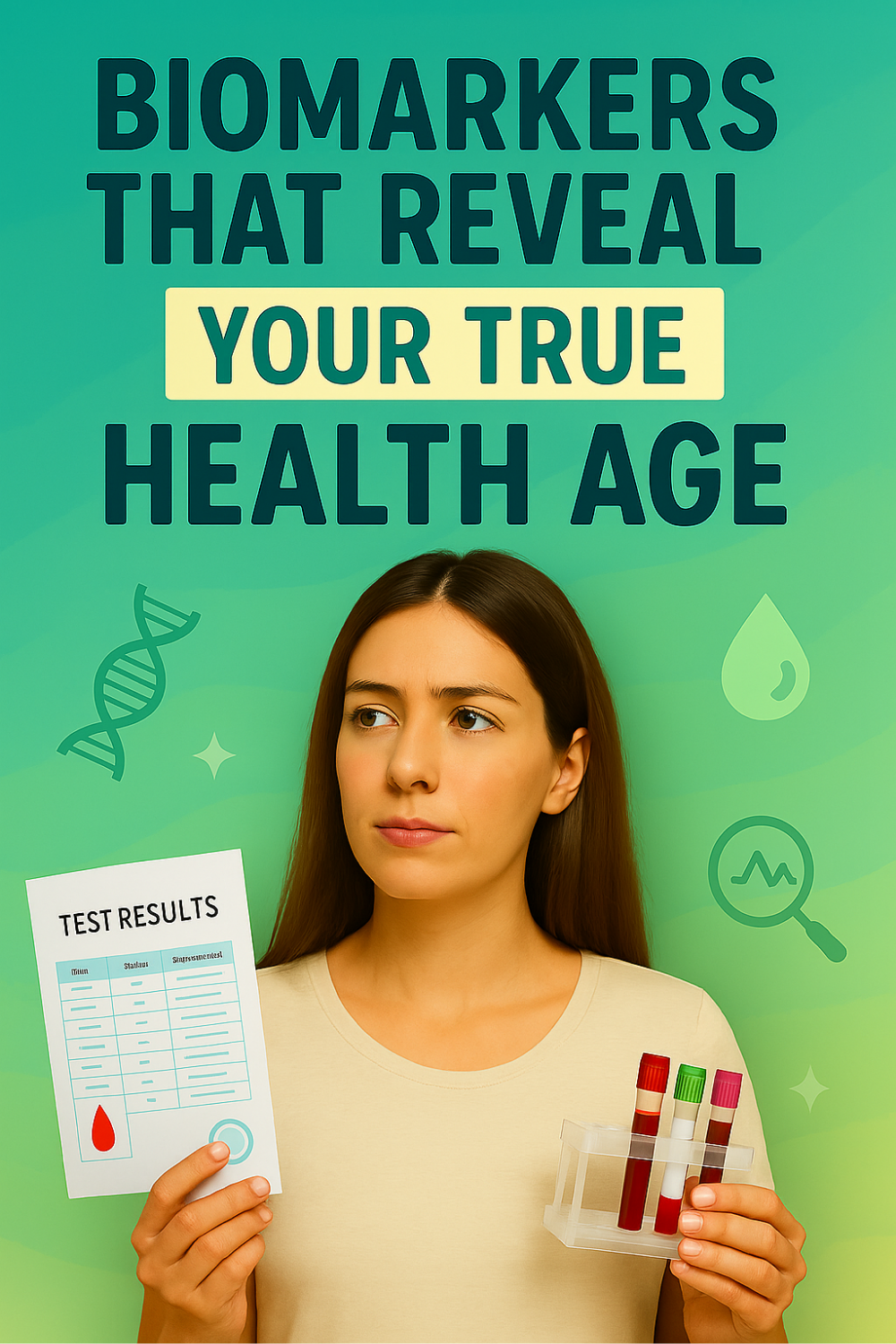Tracking your biological age through lab markers is a powerful method to understand how quickly your body is truly aging. Unlike chronological age, biological age reflects how your lifestyle, diet, and genetics affect your health and longevity. Regularly monitoring key biomarkers provides actionable insights, helping you make targeted adjustments to slow aging, optimize wellness, and improve long-term health significantly.

- What is Biological Age and Why Track It?
- Key Lab Markers You Should Monitor
- How to Get Accurate Lab Testing
- Practical Steps for Improving Biomarkers
- Common Mistakes When Tracking Biomarkers
- Long-Term Benefits of Regular Testing
What is Biological Age and Why Track It?
Biological age measures how rapidly your body is aging at a cellular level, reflecting your actual health status more accurately than chronological age alone. By tracking specific lab markers related to inflammation, metabolic health, and cellular integrity, you can better predict and manage your risk for age-related diseases. Furthermore, monitoring biological age empowers you to implement targeted lifestyle adjustments, enhancing your vitality and longevity.
Key Lab Markers You Should Monitor
Several lab markers are critical indicators of biological age. By regularly tracking these, you gain valuable insight into your health status:
- C-reactive protein (CRP): Indicates chronic inflammation, a primary driver of aging.
- HbA1c (Glycated Hemoglobin): Reflects blood sugar control, crucial for metabolic health.
- Vitamin D Levels: Essential for immune function, bone health, and longevity.
- Triglycerides and HDL Cholesterol: Important cardiovascular markers associated with aging.
- Homocysteine Levels: High levels may suggest accelerated aging, especially related to cognitive decline.
How to Get Accurate Lab Testing
Accurate biomarker tracking requires consistent and standardized lab testing. Follow these practical guidelines:
- Choose a reputable lab offering comprehensive panels.
- Schedule tests consistently—every 6-12 months.
- Fast adequately before blood tests to ensure accuracy.
- Keep detailed records of results over time for effective comparisons.
By adhering to these steps, your biomarker data will be reliable, guiding more accurate health decisions.
Practical Steps for Improving Biomarkers
Improving biomarkers associated with biological age involves holistic lifestyle adjustments. Adopting an anti-inflammatory diet rich in whole foods, regular exercise, quality sleep, and effective stress management strategies significantly lowers inflammation and balances blood sugar. Additionally, supplementing strategically—such as vitamin D or omega-3 fatty acids—supports optimal lab results. Implementing these small but meaningful changes consistently helps reduce biological age over time.
Common Mistakes When Tracking Biomarkers
A common mistake is inconsistent testing intervals, making accurate tracking impossible. Additionally, interpreting results without professional guidance can lead to confusion or unnecessary worry. Avoid excessive supplement intake without understanding lab results, and focus instead on gradual, consistent lifestyle changes. Maintaining balanced perspectives and regularly consulting healthcare professionals helps optimize biomarker improvement effectively.
Long-Term Benefits of Regular Testing
Regularly tracking your biological age provides profound long-term benefits, allowing you to proactively manage your health. Consistent monitoring of biomarkers enables early detection of potential health risks, empowering you to intervene promptly with lifestyle or medical adjustments. Over time, this practice helps slow the aging process, enhances quality of life, and significantly increases the potential for healthy longevity.
Frequently Asked Questions
How often should I test these biomarkers?
Ideally, every 6–12 months. Regular intervals provide clear, actionable health data.
Can lifestyle changes really improve biological age?
Absolutely—consistent lifestyle improvements in diet, exercise, sleep, and stress management significantly enhance biomarkers.
Is biological age more important than chronological age?
Yes, biological age better predicts your health status and risk of age-related diseases compared to chronological age.
Do I need a doctor’s recommendation for testing biomarkers?
You can order many biomarker tests independently, but professional guidance ensures accurate interpretation.
Can supplements improve my biological age markers?
Targeted supplements may help improve specific biomarkers, but always pair supplements with healthy lifestyle choices for optimal results.